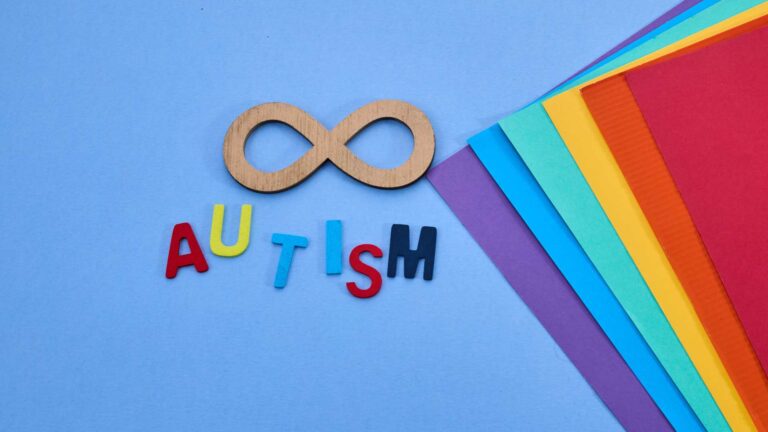Table of Contents
What does autism look like in teenagers?
For many families, the word “autism” or “being on the spectrum” begins to make its way into their children’s lives at an early age. However, discovering autism in teens is also more common than usual, as some teens navigate childhood without a formal diagnosis, only to discover later that their differences in communication, behavior, or sensory processing are part of specific features of autism spectrum disorder.
So, what does autism look like in teens? Teenagers with autism experience a unique set of struggles and strengths that differ from those seen in younger children. The transition to adolescence brings hormonal changes, increased social expectations, academic pressures, and a growing need for independence.
At ABA Centers of Tennessee, we understand that navigating autism in teenage years requires a tailored approach that respects individual needs, strengths, and goals. So, in this blog, let’s discover more about teens with autism and how parents can support their adolescent loved ones.
Why Some Individuals Are Diagnosed with Autism in Adolescence
There are several reasons why autism in teens may go unrecognized until adolescence. One reason is that some individuals exhibit traits that are subtle or mistaken for personality quirks, anxiety, or even other conditions like ADHD.
Additionally, some individuals—especially females—develop strong masking abilities, meaning they learn to imitate neurotypical behaviors to fit in, making their autism less noticeable to parents, teachers, and even healthcare professionals.
A study by Frontiers in Psychology suggests that autistic women tend to camouflage more, possibly due to greater self-awareness of their social challenges. However, this effort comes at a mental cost, contributing to anxiety, depression, and exhaustion.
When these coping mechanisms become more challenging to maintain in the face of increased social and academic demands, the underlying challenges of autism become more apparent. For some families, a diagnosis in the teenage years brings clarity to struggles that were previously unexplained, allowing them to access resources and support they may have lacked before.
How Autism in Teens Differs from Childhood ASD
Autism in teenagers often looks different from autism in younger children. While some core autism traits remain, including differences in social interaction, communication, and sensory sensitivities, adolescents face new challenges as they strive for independence and peer connections.
Some teens with autism may have developed coping mechanisms that masked their symptoms in childhood, as explained earlier, leading to a later diagnosis. Others may experience intensified difficulties in areas like executive functioning, emotional regulation, and social skills as life becomes more complex.
Moreover, research by the Review Journal of Autism and Developmental Disorders suggests that while many autistic teens desire friendships, their experiences of connection and loneliness are complex. Traditional ideas of friendship, based on neurotypical expectations, may not fully reflect what meaningful relationships look like for them. Some autistic individuals pursue friendships mainly to fit in rather than for personal fulfillment, and having a best friend does not permanently alleviate feelings of loneliness.

How Parents Can Support Teens with Autism
Navigating autism is already a challenge not only for the individual but also for their parents or caregivers, who play many roles in addition to parenting and educating.
Now imagine a teenager with autism navigating the same challenges, sensory sensitivities, and interaction and communication issues in adolescence, when it is a stage of change and struggle in itself. It’s a double challenge for parents, but there are ways to support them along the way.
Prioritize Understanding Before Intervention: Spend time learning how your teen specifically experiences autism – their sensory profile, communication style, and unique interests aren’t just “symptoms” but fundamental aspects of who they are.
Create Collaborative Accommodations: Instead of imposing solutions, work with your teen to identify challenging situations and develop strategies together.
Build a Support Network: Connect with the autistic community and support groups to gain insights from those with lived experience who can serve as mentors and role models.
Recognize Masking and Its Costs: Many teens with autism exhaust themselves trying to appear “normal” at school. Ensure that the home is a place where they can be authentic without meeting social expectations.
Focus on Meaningful Social Connections: One deep friendship or community based around shared interests often provides more value than forcing traditional social activities.
Prepare for Transitions: Major changes require explicit planning, visual supports, and extra processing time, particularly for education and independence milestones.
Seek Professional Guidance: Autism care services, such as ABA therapy, help individuals learn positive skills, navigate challenging behaviors, and promote independence.
Autism in Teens and ABA Therapy
Applied Behavior Analysis (ABA) therapy is often associated with early intervention, but it remains highly beneficial for teens with autism. ABA therapy can help teens develop skills that promote independence, improve social interactions, and manage challenging behaviors.
At ABA Centers of Tennessee, our ABA programs support autism in teenagers with autism in meaningful ways by focusing on:
- Enhancing Social Skills: Helping teens build meaningful connections by improving their ability to read social cues, initiate conversations, and navigate friendships without pushing them to conform to social norms or change who they are.
- Developing Executive Functioning Skills: Teaching strategies to improve organization, time management, and problem-solving skills for academic and personal success.
- Reducing Anxiety and Behavioral Challenges: Providing tools to regulate emotions, manage stress, and reduce behaviors that may interfere with daily life.
- Promoting Independence: Encouraging self-care, decision-making, and problem-solving skills that allow teens to transition into adulthood with confidence.
How ABA Centers of Tennessee Supports Teens with Autism
At ABA Centers of Tennessee, we believe that every teenager with autism deserves access to tailored, compassionate care that respects their individuality. Our ABA therapy services cater to both children and adolescents, ensuring that interventions align with each individual’s unique goals, abilities, and preferences.
We also work closely with families to provide guidance and resources, fostering a supportive environment that extends beyond therapy sessions. Our goal is to make autism in teens a journey with confidence!
If you are looking for support for your teenager with autism, call us at (844) 423-9483 or schedule a free consultation. Together, we can help your teen develop essential abilities, build relationships, and reach their full potential.








